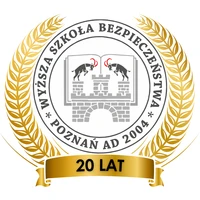Information
Information is any entity or form that provides the answer to a question of some kind or resolves uncertainty. It is thus related to data and knowledge, as data represents values attributed to parameters, and knowledge signifies understanding of real things or abstract concepts. As it regards data, the information's existence is not necessarily coupled to an observer (it exists beyond an event horizon, for example), while in the case of knowledge, the information requires a cognitive observer.
Information Science
Information science is a field primarily concerned with the analysis, collection, classification, manipulation, storage, retrieval, movement, dissemination, and protection of information. Practitioners within and outside the field study application and usage of knowledge in organizations along with the interaction between people, organizations, and any existing information systems with the aim of creating, replacing, improving, or understanding information systems. Historically, information science is associated with computer science, library science, and telecommunications. However, information science also incorporates aspects of diverse fields such as archival science, cognitive science, commerce, law, museology, management, mathematics, philosophy, public policy, and social sciences.
Library
A library is a collection of sources of information and similar resources, made accessible to a defined community for reference or borrowing. It provides physical or digital access to material, and may be a physical building or room, or a virtual space, or both. A library's collection can include books, periodicals, newspapers, manuscripts, films, maps, prints, documents, microform, CDs, cassettes, videotapes, DVDs, Blu-ray Discs, e-books, audiobooks, databases, and other formats. Libraries range in size from a few shelves of books to several million items. In Latin and Greek, the idea of a bookcase is represented by Bibliotheca and Bibliothēkē (Greek: βιβλιοθήκη): derivatives of these mean library in many modern languages, e.g. French bibliothèque.
Science
Science (from Latin scientia, meaning "knowledge") is a systematic enterprise that builds and organizes knowledge in the form of testable explanations and predictions about the universe.
Information
Wisdom is dead. Long live information.
Mason Cooley (1927-2002), American academic and aphorist. City Aphorisms (1984).
Science
Within the short span of a human life and with man's limited powers of memory, any stock of knowledge worthy of the name is unattainable except by the greatest mental economy. Science itself, therefore, may be regarded as a minimal problem, consisting of the completest possible presentment of facts with the least possible expenditure of thought.
Ernst Mach, The Science of Mechanics: A Critical and Historical Account of Its Development (1893) p. 490, Tr. Thomas J. McCormack.
Information
Information smacks of safe neutrality; it is simple, helpful heaping of unassailable facts. In that innocent guise, its the perfect starting point for a technocratic political agenda that wants as little exposure for its objectives as possible. After all, what can anyone say against information?
Theodore Roszak, The Cult of Information: The folklore of computers and the true art of thinking, 1968, p. 19.

